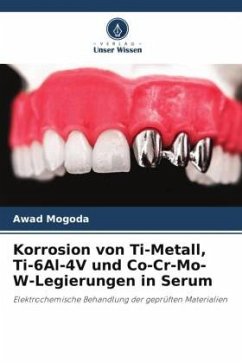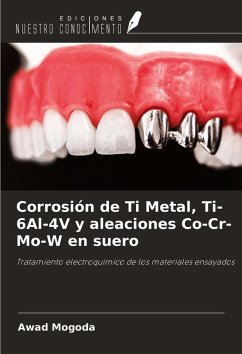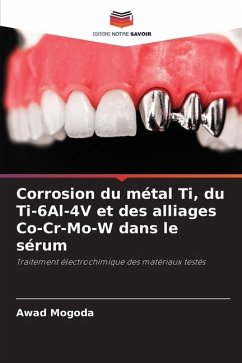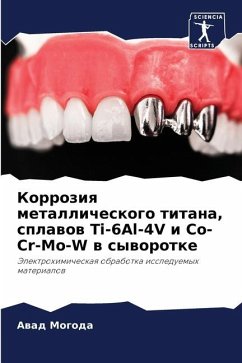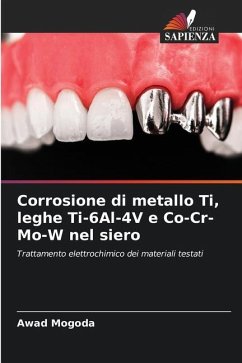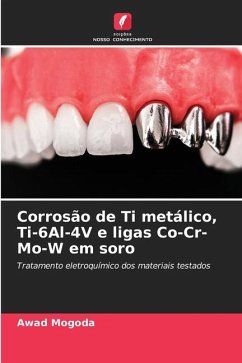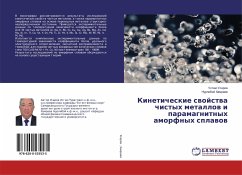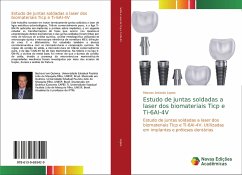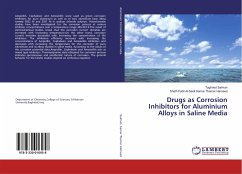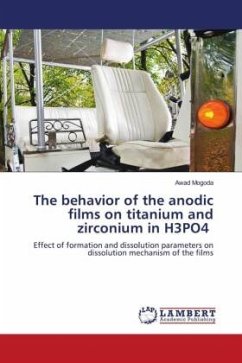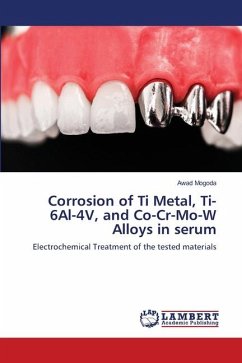
Corrosion of Ti Metal, Ti-6Al-4V, and Co-Cr-Mo-W Alloys in serum
Electrochemical Treatment of the tested materials
Versandkostenfrei!
Versandfertig in 6-10 Tagen
29,99 €
inkl. MwSt.

PAYBACK Punkte
15 °P sammeln!
The open-circuit potential of the uncoated, n-TCP coated and GO/CS/n-TCP composite coated titanium metal, TAV, and Co-Cr-W alloys in serum increases in the noble direction with increasing the immersion time, and this continued for about one hour before reaching a constant value revealing growth of the air-formed protective film on the surfaces of the materials. A two-time constants equivalent electrical circuit was suitable for the duplex in nature passive film on the examined materials. The EIS results indicated that the corrosion resistance increases with time and then decreases after 21 day...
The open-circuit potential of the uncoated, n-TCP coated and GO/CS/n-TCP composite coated titanium metal, TAV, and Co-Cr-W alloys in serum increases in the noble direction with increasing the immersion time, and this continued for about one hour before reaching a constant value revealing growth of the air-formed protective film on the surfaces of the materials. A two-time constants equivalent electrical circuit was suitable for the duplex in nature passive film on the examined materials. The EIS results indicated that the corrosion resistance increases with time and then decreases after 21 days due to the partial decomposition of the protective film on the electrode surfaces. The corrosion resistance of examined materials surfaces follows the order: uncoated coated< GO/CS/n-TCP composite coated. Coating of the tested materials surfaces with n-TCP or composite increases the process of the passive film growth with time till a definite thickness but for a long time, this protective layer dissolves to a certain limit.



